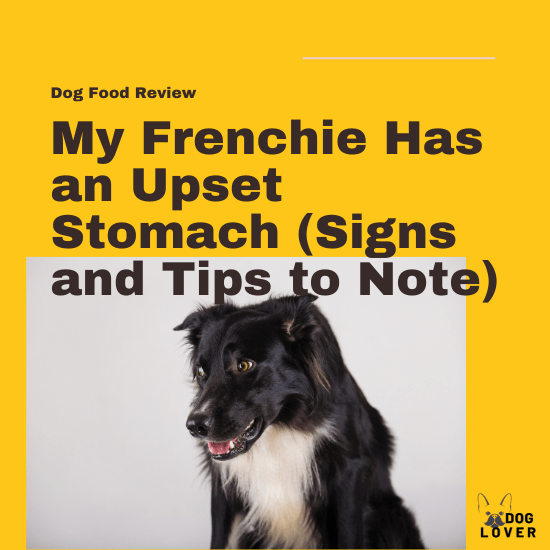Puppy worms can cause havoc in your pup’s life
Besides being a constant headache to pet parents, worms pose a health problem for our fur babies.
They can negatively impact our daily routines, making your pooch dull with no interest in previously enjoyed activities.
This article reviews four major puppy worms
A Review of Four Major Puppy Worms
Roundworm
Also known as nematodes, roundworms are one of the major worms in puppies. They are 10-12 centimeters in length and look like spaghetti. There are two types of roundworms, Toxocara canis and Toxascaris leonine, and both types are white.
How do puppies get roundworms?
- Transmission from the mother: Dogs with roundworms can pass them to their puppies during birth or through breastfeeding
- Contaminated soil: Puppies love to roll on dirt and, in the process, eat them. This transfers roundworms in the soil to the puppy’s system.
- Infected meat: Meat is a significant component of a dog’s food. Transmission of roundworms occurs when your fur baby consumes meat contaminated with roundworms.
- Bites: Infected mosquitoes, fleas, and ticks will pass roundworms to puppies through their lethal bite
- Interaction with infected animals: If your puppy comes in close contact with infected dogs or cats, they will get the roundworms
- Fecal matter: Consuming fecal matter that has worms leads to worm infestation.
Symptoms
- Stunted growth: Puppies with worms tend to grow slowly compared to their healthy fur friends. They gain little or no weight regardless of what they eat.
- Vomiting and diarrhea: Worms cause stomach discomforts causing ejection of stomach contents through vomiting and diarrhea. You may notice worms in their stool.
- Extended stomach: Puppies with roundworms have potbellies resulting from multiple worms invading and residing in the stomach
- Malnutrition: Worms feed on food meant for the growth and development of puppies. This leads to low or no nutrients in the puppy’s body and therefore causes malnutrition.
- Sluggish coat: Puppies with worms have dull-looking coats resulting from vitamin A deficiency
- Pneumonia: In severe cases, puppies can get pneumonia due to worms moving upwards to the lungs
How to treat roundworms
Give your puppy dewormers like pyrantel and piperazine, which kill the worms.
The vet can prescribe heartworm medication meant for the prevention of future worm infestation.
Tapeworm
Tapeworms come from the family of cestodes, and they are flat and irregular in shape, 4-8 inches long, white in color, and their mode of transmission is through flea bites. The most common type of tapeworm iS Dipylidium Caninum.
How do puppies get tapeworms?
The primary mode of tapeworm transmission is the host that harbors tapeworm eggs. The host can be a flea or a bird.
When your puppy ingests the host, the worms get transferred to them
Symptoms
- Anal scratching: Your puppy may show signs of an irritated anus, wanting to scratch the area by scooting the anus on the ground or the floor. Another sign of an aching anus is the constant biting of the anal area.
- Vomiting and diarrhea: Tapeworms cause stomach upsets and may pass through the vomit or stool
- Weight loss: Tapeworms consume essential nutrients and prevent their absorption leading to a nutrient deficiency which causes weight loss
How to treat tapeworms
Your vet will prescribe deworming drugs like praziquantel which detaches the worms from the intestines and cuts them into tiny pieces which digest quickly. You can give your puppy drugs in the form of shots or tablets.
The vet may recommend a monthly deworming plan to prevent further worm infections.
Hookworm
They have hook-like mouths hence the name hookworm. They use the mouth to attach themselves to the intestine. Hookworms are too tiny to be seen by a naked eye; they are 2-4 millimeters long. Hookworms suck blood from puppies, and their larvae can stay alive in the soil for weeks to months.
How do puppies get hookworms?
- From the mother: Mothers can pass worms to their puppies while they are still in the uterus. Worms are also passed from mothers to puppies through the mother’s milk.
- Oral transmission: Puppies can eat soil or food contaminated with hookworms, thus getting infected
- The skin: Hookworms can penetrate through your puppy’s skin
Symptoms
- Anemia: The hookworm attaches itself to the intestinal walls and sucks blood from puppies. Your puppy will lose blood due to the bites and bleeding from the wound left when the worm leaves that spot for another new site. Anemia presents in dogs through pale gums, fatigue, slow body growth, and lethargy.
- Bloody diarrhea: Hookworm causes internal bleeding in puppies, and you will see traces of blood in their watery stool. Diarrhea resulting from hookworm bites can also appear dark in color due to the digested blood.
- Weight loss: Puppies lose weight due to the frequent blood loss from the constant hookworm bites
- Irritated paws: Your puppy will show signs of wanting to scratch himself due to the continuous sensation of itchy paws. You can relieve this by using a dog brush and gently rubbing it on their paws.
- Hookworm dermatitis: Puppies can get visible skin problems at the point where the hookworm enters the body. The most affected parts are the feet. Your puppy’s feet will swell, feel soft and spongy when touched, and have elevated temperatures.
- Death: Severe hookworm infection can be fatal, leading to sudden fainting and death. The higher the number of hookworms in your puppy, the higher the levels of blood loss. Blood is the lifeline of all the body functions, and lack of it can lead to the failure of essential organs like the heart, resulting in death.
Treatment
Deworming medications help relieve the symptoms of hookworm infection.
For puppies with severe blood loss, they will need a blood transfusion.
The vet can administer fluids, especially in puppies who are weak and dehydrated.
Whipworm
The name originates from their thick anterior and long posterior that looks like a whip, and their scientific name is Trichuris Vulpis. Whipworms are also tiny as they are 5-6 millimeters long. Whipworm eggs can stay alive for five years and have a three-stage life-cycle, including the egg, larvae, and adult.
How do puppies get whipworms?
The mode of transmission for whipworms is a contaminated stool.
Whipworms are resistant, and they can stay for five years in stool and still have an active infection level.
Symptoms
- Weakness: Whipworm feeds on blood, and low blood levels lead to frequent bouts of exhaustion
- Diarrhea: Whipworms centimeters mouth cause stomach upsets like diarrhea
- Anemia: Severe whipworm infestation causes anemia due to constant blood loss. Pale gums and fatigue are the main symptoms of anemia in puppies. Anemic puppy will prefer resting to the previously enjoyed physical activities
- Bloody stool: The inner bleeding resulting from whipworm bites can lead to blood in the stool. As the stool passes, it attracts traces of blood from the bitten sites. You may also notice mucus in the stool.
- Weight loss: Puppies infected with whipworms cannot absorb essential nutrients leading to weight loss
Treatment
Dewormers like fenbendazole and praziquantel aid in the treatment of whipworm infections
Puppies with severe cases of anemia may require a blood transfusion.
Monthly follow-up medications will aid in eliminating the whipworms as they might be resistant to the first dose.
Natural ways to combat worms in your dog
- Dried coconut: Unsweetened dried coconut comes in handy when it comes to worms. To improve its effectiveness, add dried coconut to the kibble.
- Apple cider vinegar: The fermentation feature of apple cider vinegar makes the best natural remedy for worms
- Carrot: Chopped carrot rubs against the intestine hence removing any foreign materials, including worms attached to the intestine.
- Turmeric: Turmeric has anti-inflammatory properties, and besides preventing worms, it repairs the intestine
- Pumpkin seeds: Pumpkin seeds have an amino acid called cucurbitacin, which breaks down worms and gets rid of them. Give your puppy baked pumpkin seeds as a treat and introduce them gradually.
How long does it take to get rid of worms in puppies?
Dewormers are very effective, and it can take a few days to one week for worms to pass with stool.
Puppies may also require subsequent treatment for complete elimination
Can I treat my dog for worms without going to the vet?
Yes, you can use natural remedies like pumpkin seeds, turmeric, chamomile, and coconut to treat your dog.
However, severe cases call for a visit to the vet for proper medication
Foods that are natural dewormers
Natural dewormers’ foods include papaya, cloves, turmeric, carrots, garlic, dried coconut, chamomile, and apple cider vinegar.
They have properties that work against worms by paralyzing and eliminating them.
Do puppy poop worms after deworming?
Yes, puppies poop worms after deworming
However, some worms like whipworms are too small to be seen by the naked eye.
Worms pass with the stool after a few days
How do you know if the dewormer is working?
To determine the effectiveness of a dewormer, observe your dog’s stool for several days.
You may see worms in it.
For small worms, you will notice the elimination of worm symptoms
Final Thought
Four major types of worms can infect puppies and include roundworm, hookworm, tapeworm, and whipworm.
The effects of these worms can be fatal as they can cause death.
Vet-recommended medications are available for deworming puppies and include fenbendazole and praziquantel.
You can also opt for natural remedies, which include pumpkin seeds, turmeric, coconut, and apple cider vinegar, which have properties that naturally eliminate worms.
Prevention is always better than cure, so be sure to keep your environment clean and free from fleas and the spread of worms.
Always consult the vet before using any dewormers on your puppy.


